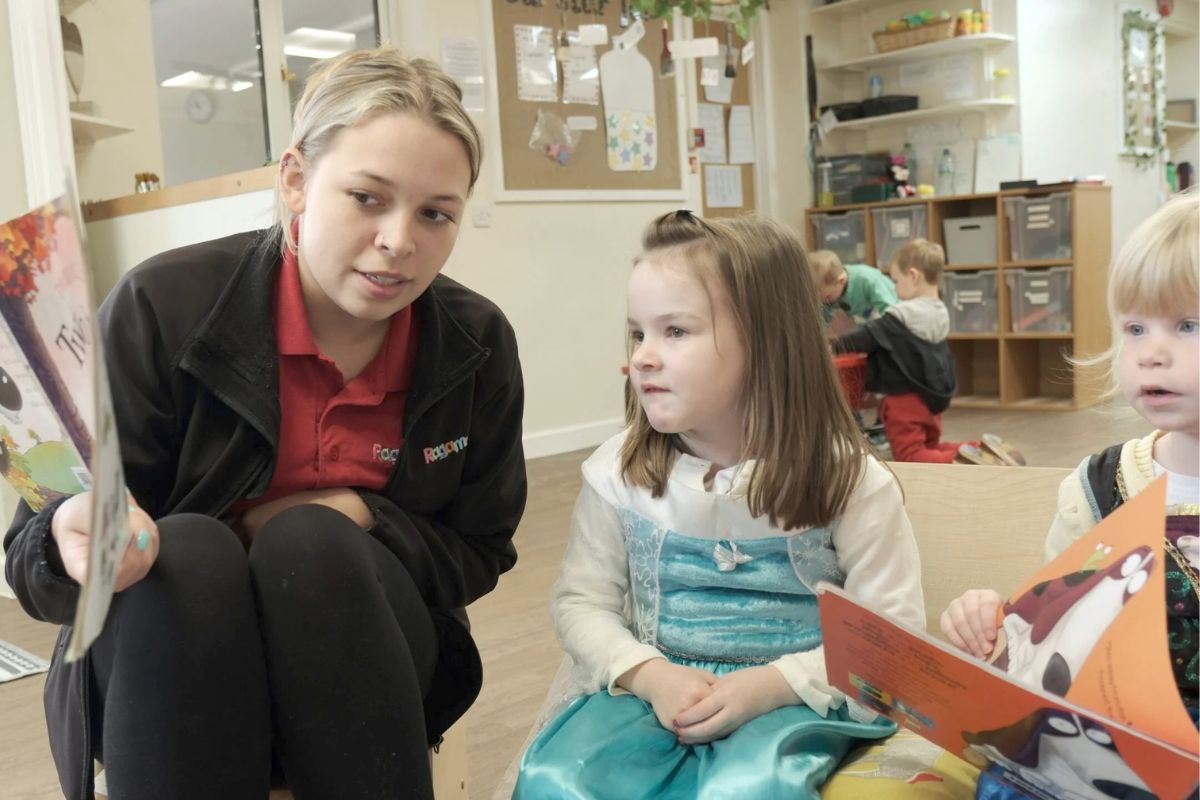Plans to create two equal pathways for young people, introducing the MBacc

THE Mayor of Greater Manchester, Andy Burnham, has outlined new ambitious plans to create two equal pathways for young people when they make their GCSE choices – one academic and one focussed on technical careers. These would be called Greater Manchester Baccalaureate (MBacc).
As part of the Trailblazer Devolution Deal, Greater Manchester will have further oversight of post-16 technical skills, allowing local leaders to better shape how the city-region supports the one in three young people who do not want to go to university and match them into the skilled jobs being created in the local economy.
MBacc
As part of this, the Mayor has proposed the idea of a Greater Manchester Baccalaureate (MBacc) for technical education, which would sit alongside the existing English Baccalaureate (EBacc) for those wanting to pursue a university education. Currently, almost two-thirds of 16-year olds in Greater Manchester do not pursue or achieve an EBacc and an MBacc is designed to plug that gap.
Under the current system, young people are offered a clear pathway to university through the EBacc at age 14 – a set of subjects opening up opportunities to A Levels, university and employment.
The proposal is that by September 2024 the MBacc will guide students towards subjects which will maximise their chances of getting a good job in our vibrant regional economy, such as Engineering, Computer Science or the creative subjects. Young people on the MBacc route would take subjects such as Engineering, Business Studies and Art and Design alongside the core of Maths, English and Computer Science – or an ICT equivalent. A consultation with government and local partners would take place on the proposed MBacc route subjects.
The EBacc is designed to maximise young people’s chances of a good university place, while in comparison the MBacc is designed to maximise their ability to get a good job in the growing success story of the Greater Manchester economy.
T Levels
The MBacc will be designed to steer young people on the technical route to seven different career gateways at age 16 which represent the strongest areas of the Greater Manchester economy, including:
- Manufacturing and Engineering
- Financial and Professional
- Digital and Technology
- Health and Social Care
- Creative, Culture and Sport
- Education and Early Years
- Construction and Green Economy.
Each of the gateways will lead to a group of quality T Levels, accompanying work placements and other technical qualifications. Currently, 16 to 18-year-olds can take T Levels at 24 approved providers in the city-region, with more qualifications set to become available over the next few years.
GMACS
As part of the proposals, Greater Manchester’s Apprenticeship and Careers Service (GMACS) will also be enhanced, sitting alongside the UCAS system available to university applicants.
The platform would enable young people to explore and apply for technical education options, as well as access a wider package of support and enrichment activity. GMACS was established for young people searching and applying for apprenticeships, with plans to expand the service with applications available for other post-16 options.
Apprenticeships
At age 18, young people would then have the opportunity to progress to a higher-level apprenticeship, or degree apprenticeship, which are highly valued by Greater Manchester employers and give young people the chance to continue their learning.
The bold plans for technical education also include working with employers in the city-region to match the skills needed in Greater Manchester’s economy through the creation of employer boards, ensuring a clear line of sight to the great jobs available in the city-region. There would also be the creation of further workplace experiences, curriculum enrichment and other opportunities that support the development of soft skills and entry to the world of work.
These are Greater Manchester’s proposals, which will be discussed and agreed with government.
Andy Burnham, Mayor of Greater Manchester, said:
“For too long we have ignored the value of technical skills and that ends today in Greater Manchester. We want to create equivalent opportunities for our young people in Greater Manchester and ensure they are provided with the tools to achieve their career aspirations, with the idea of an MBacc, developing our GMACS offer and through partnership working with employers.
“The EBacc is great for young people who want to go onto university, but there is no equivalent suite of qualifications at 14 and 16 that align with the real-life employment opportunities being created in our city-region. There is also no direct link to employers, leading to skills gaps in the Greater Manchester economy and confusion from young people on what they need to do to secure a job in their chosen industry. Today is the start of the journey of creating a clear and equal pathway for technical education.”
The government’s ambition is to see 90 percent of young people leave school with an EBacc by 2025, but in Greater Manchester only 36 percent of Greater Manchester’s 33,250 16-year-olds left compulsory education with an EBacc. This means almost two thirds of young people in the city-region have no equivalent suite of qualifications aligning and supporting progression into technical pathways valued by businesses seeking skills and talent.
Research conducted by Greater Manchester Combined Authority’s (GMCA) #BeeWell survey also found only one in three Year 10 pupils can recall receiving information about technical education options, while one in four Year 10s said they did not feel in control over their future education. This is higher among female students, young people with special educational needs and disadvantaged young people.
Councillor Eamonn O’Brien, GMCA lead for Education, Work, Skills, Apprenticeships and Digital, said:
“Employers say there is wide demand for skills in areas such as digital, education and early years or construction, but our current skills system is not linking young people to these jobs.
“Our ambition is to start with what is already working well, in this case the well-travelled route to university, and ensure young people have the same route to technical education.
“By using the powers granted from the Trailblazer Devolution deal, we will be able to create a system which ensures the city-region is a fair and equal place for everyone to get ahead in life and work.
“We are putting forward some ideas about how this can be done, not as an end in itself but as the start of a discussion about how, working together, we can move towards the vision of Greater Manchester as an integrated technical education, skills and work city-region.”
Earlier this year, Greater Manchester gained further levers with skills and employment forming an exciting part of the Trailblazer Devolution Deal. The Deal confirmed a new partnership between Greater Manchester and the government to provide oversight of post-16 technical education and skills.
This builds on the success of the devolution of the Adult Education Budget (AEB) which saw the city-region take on responsibility for adult skills back in August 2019, and GM Working Well (Work & Health Programme), part of a suite of employment support programmes that help people with health conditions to move towards or into sustained work. Since having control of functions and budgets, the city-region has been able to craft policies in response to local needs. This has made it easier for residents to access training and support they need to get ahead in life and in work.
To find out more about opportunities for young people in Greater Manchester please visit GMACS.
Sector Response
Baker Dearing Educational Trust chief executive Simon Connell said:
“We welcome Andy Burnham’s new commitment to an education pathway including technical subjects from the age of 14.
“A similar approach has achieved great results and destinations for our UTC students which is why we want to replicate it on an ever wider scale with our new UTC Sleeve initiative. There is now a tremendous push, nationwide, for the establishment of an employer-led technical education pathway for students in secondary schools.
“From our research into the nearly 20,000 UTC students across the UK, we have found 14-year-olds have often begun to develop a much greater understanding of what career they would like to follow. So beginning to introduce more specialisation to education at that age will help students explore their interests and skills, and connect with relevant employers.
“We are also pleased that the MBacc will focus on engineering, computer science, and IT. Many of our UTCs in the north-west, including Leeds and Sheffield Olympic Legacy Park are working with employers to deliver an engineering or IT specialised curriculum to fill an urgent local need for skills.
“We would urge the government to engage with the MBacc programme and seriously look at how students benefit from access to a greater spread of technical education subjects.”











Responses